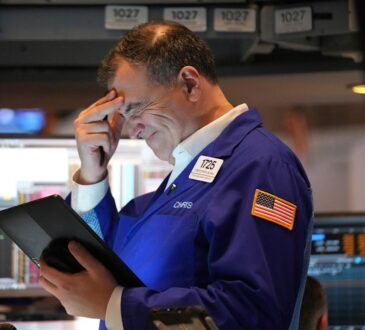Unlock the Editor’s Digest for free
Roula Khalaf, Editor of the FT, selects her favourite stories in this weekly newsletter.
Best known for its beaches and nightlife, Thailand has long been a favourite holiday destination for global tourists. In 2024, foreign tourists have made a significant return to cities including Bangkok, Phuket and Ko Samui following a years-long slump, boosting the local tourism industry, which accounts for nearly a fifth of Thailand’s GDP. But the return of foreign visitors to the country will not be enough to boost investor sentiment towards local stocks.
On the surface, Thailand’s economy is doing well. The country recorded 17.5mn foreign tourists in the first half of this year, according to official data, up more than a third from last year. These visitors have contributed more than $22bn in tourism revenue. That growth is expected to accelerate further for the rest of the year
Meanwhile, the country may become an unexpected beneficiary of tariff wars between China and the US. Chinese automaker BYD has opened its first electric vehicle plant in Thailand this month, just as the US and the EU are imposing higher tariffs on EVs made in China. As more production is moved to Thailand, local suppliers should enjoy the benefit.
Yet the outlook for Thai equities, which have been breaking records for the wrong reasons, is considerably bleaker. Stocks have fallen for six straight quarters as of the second quarter. The benchmark Set index is down nearly a fifth from June last year. Even shares of top travel-related companies including Airports of Thailand, which manages 10 international airports in the country, and hotel restaurant group Central Plaza Hotel PCL are down this year despite growing sales.
For foreign investors, these declines are compounded when combined with the weak currency against the US dollar.

Uncertainty from the political unrest that has been escalating in the country is one of the key reasons for the weakness. Senators have filed a petition to remove the prime minister from his post this year. Meanwhile, a battle between the central bank and the government is getting worse. The government, which needs to increase social spending and public investments, is agitating to boost economic growth through rate cuts, while the central bank has continued to push back.
Within south-east Asia, Thailand has lagged behind peers in the past decade with average economic growth below 2 per cent. It is also one of the fastest-ageing countries in the world, posing a long-term challenge to its growth.
The Set index, which has a price-to-earnings ratio of 17 times and a price-to-book of 1.2 times, is still valued higher than regional peers. Investors can still find better value elsewhere.



